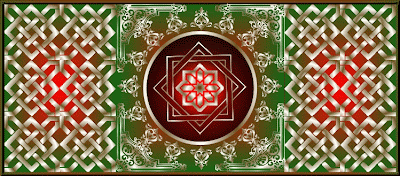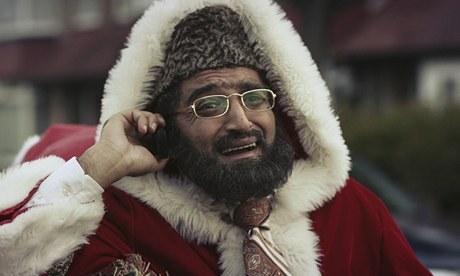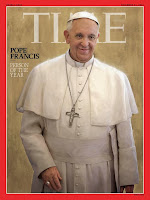Here is a piece of good news! Alhamdu Lillah! Praise the Lord.
URL - http://worldmuslimcongress.blogspot.com/2013/11/book-on-islam-pluralism-nationhood-by.html
A new book called "Islam, Pluralism and Nationhood, a legacy of Maulana Azad" was presented to Vice President of India, Dr. Mohd. Hamid Ansari today in New Delhi. I am delighted to share a few random notes with my fellow Muslims and fellow humanity about my own experience with Pluralism. I need to speed up and get the book on Pluralism, my version.
One of the most ridiculed items is the pluralism prayers that I recite at City Halls and most of the public gatherings. Just as we (Muslims, Hindus, Sikhs, Jews and others) don't like bigoted politicians, why should others like bigoted Muslims?
Would you care for a politician or a civic leader who greets the audience with Namaste, Satsri Akaal, Shalom, Buddha Namo, Aho Piva and excludes Salam? Should fellow Americans elect a bigoted Muslim for a public office who excludes others?
I am recalling criticism and curses heaped on me fifteen years ago for nearly a ten years for talking about Islam being a pluralistic faith. I will not name the people, but some big Imams and big time Muslim organizational leaders have ridiculed me in writing, and I happen to receive those emails by mistake. The very same people are talking about pluralism now, and I welcome them, but I hope they are sincere and not for any gains.
Here are the two paragraphs in particular they maligned me for, and if you are a moderate Muslim you don't see the problem with this, but if you are on the right, you become the ticketing agent and give free tickets to hell.
Dear Creator of the universe, please accept our gratitude in every name we collectively call upon you; Manito, Yahweh, Elahi, Ishwar, Allah, Mahavira, Buddha, Wahe Guru, Ahura Mazda, mother earth and Jesus Christ.
We are one nation under you, indivisible with liberty and justice for all. We are represented by every race, nationality, ethnicity, language, culture and religion. Collectively, we see you as one, none and many and in every form; male, female, genderless and non-existent, being and non-being, nameless and with innumerable names.
We have ways to go in understanding what it really means to call Allah, the Rabbul Aalameen? or the Prophet, the Rahmatul Aalameen? (God of the Universe and Mercy to the Universe)
My fellow Muslim leaders don't get that, unfortunately, just like the right wing Republicans run the show while the good moderate majority remains quiet, the right wing Muslims run the show and the good moderate muslim majority remains quiet. The good news is the moderate Muslims are speaking up and may God give them more power to speak up.
Things are coming around, a few years ago, in an award ceremony, I spoke.... We are yet to understand and communicate the purpose of religion which is to build cohesive societies where no human has to live in fear of the other. Our conflicts arise from our arrogance.
Let me proclaim on this day, that my religion is beautiful to me as yours is to you, my religion brings peace and tranquility to me and causes me to see the sameness of purpose in other religions, and now this is the difficult part, that I have addressed twice with a few Imams in 2007, and at the Parliament of Worlds Religions in 2009 -"I will not claim that my religion is superior to yours, if I did that, it would amount to arrogance - arrogance breeds conflicts. So, I hope, one day, all of us can proclaim that with all our humility -"to you is your beautiful religion and to me is my beautiful religion." Humility forges relationships and peace. "
The other gentleman, Larry James, chief executive officer of Central Dallas Ministries, also received the Religion Communicator Award . Congratulated me on his way to the stage and said, he could not say that yet. I said, Larry, I hope one of these years, all of us can say that.
I believe, many of us are willing to say that now with all sincerity, acknowledging the divinity of other religions is not going to diminish an ounce of your religion, but rather enhance the idea of oneness of creation, creator and humanity.
It is not just Muslims, but most of the Jews, Christians, Hindus, Buddhists, Sikhs and others are not willing to say that either. If we can get to that to that point, the world peace gets closer. If we can learn to respect the otherness of others, and accept the God given uniqueness of each one of the 7 billion of us, then conflicts fade and solutions emerge.
Thanks to Pope Francis, my new religious mentor, he will say that, and will do that before his first anniversary, I am following his path, he has done everything I mentioned in my March 23rd welcome, with that others will follow. I beleive my other religious mentors like Bishop Tutu, Javed Ahmed Ghamidi, Barack Obama and Aga Khan would not have an issue stating that when the time is right. These men are self-confident about their faith.
Islam is indeed all about Pluralism - i.e., respecting the otherness of others; to you is your way and to me is my way, and that is with respect without denigrating the other. The above statement "that my religion is not superior" is embedded in Sura Kafirun, and every Muslim ought to say that. There is no compulsion in faith. No matter who you are or what you believe, as long as you are good to fellow humans, God assures his grace.
Prophet Muhammad remains the first religious man who initiated the interfaith dialogue. No one before had the opportunity to do that. He set the tone of that dialogue; to respect the otherness of others (pluralism). Many a Muslims are simply not aware of it.
Islam is not about arrogance, an arrogant person is least liked by God. Islam is about humility. Humility builds bridges and arrogance kills the relationships.
Islam is about creating peaceful societies where no human has to live in fear of others. If we just look at the Prophet's work - it was all about letting people live their own lives (Madinah Charter). Islam is not about creating barriers and living exclusively in shells, it is about living openly with every one around you as God has created us into many communities and nations and the best one amongst us is the one who learns about each other. As we learn about each other, conflicts fade and solutions emerge.
I am glad this book came out and Insha Allah, more will be coming from fellow Muslims including this Muslim.
Mohd Hamid Ansari being presented a book Islam Pluralism Nationhood Legacy of Maulana Azad - Posted on November 23, 2013
http://savedelete.com/mohd-hamid-ansari-being-presented-a-book-islam-pluralism-nationhood-legacy-of-maulana-azad.html
The Vice President, Mohd. Hamid Ansari being presented a book entitled “Islam Pluralism Nationhood Legacy of Maulana Azad“ by Prof. Mushirul Hasan and Jayasen Gupta, in New Delhi on Nov. 22, 2013.
URL - http://worldmuslimcongress.blogspot.com/2013/11/book-on-islam-pluralism-nationhood-by.html
A new book called "Islam, Pluralism and Nationhood, a legacy of Maulana Azad" was presented to Vice President of India, Dr. Mohd. Hamid Ansari today in New Delhi. I am delighted to share a few random notes with my fellow Muslims and fellow humanity about my own experience with Pluralism. I need to speed up and get the book on Pluralism, my version.
One of the most ridiculed items is the pluralism prayers that I recite at City Halls and most of the public gatherings. Just as we (Muslims, Hindus, Sikhs, Jews and others) don't like bigoted politicians, why should others like bigoted Muslims?
Would you care for a politician or a civic leader who greets the audience with Namaste, Satsri Akaal, Shalom, Buddha Namo, Aho Piva and excludes Salam? Should fellow Americans elect a bigoted Muslim for a public office who excludes others?
I am recalling criticism and curses heaped on me fifteen years ago for nearly a ten years for talking about Islam being a pluralistic faith. I will not name the people, but some big Imams and big time Muslim organizational leaders have ridiculed me in writing, and I happen to receive those emails by mistake. The very same people are talking about pluralism now, and I welcome them, but I hope they are sincere and not for any gains.
Here are the two paragraphs in particular they maligned me for, and if you are a moderate Muslim you don't see the problem with this, but if you are on the right, you become the ticketing agent and give free tickets to hell.
Dear Creator of the universe, please accept our gratitude in every name we collectively call upon you; Manito, Yahweh, Elahi, Ishwar, Allah, Mahavira, Buddha, Wahe Guru, Ahura Mazda, mother earth and Jesus Christ.
We are one nation under you, indivisible with liberty and justice for all. We are represented by every race, nationality, ethnicity, language, culture and religion. Collectively, we see you as one, none and many and in every form; male, female, genderless and non-existent, being and non-being, nameless and with innumerable names.
We have ways to go in understanding what it really means to call Allah, the Rabbul Aalameen? or the Prophet, the Rahmatul Aalameen? (God of the Universe and Mercy to the Universe)
My fellow Muslim leaders don't get that, unfortunately, just like the right wing Republicans run the show while the good moderate majority remains quiet, the right wing Muslims run the show and the good moderate muslim majority remains quiet. The good news is the moderate Muslims are speaking up and may God give them more power to speak up.
Things are coming around, a few years ago, in an award ceremony, I spoke.... We are yet to understand and communicate the purpose of religion which is to build cohesive societies where no human has to live in fear of the other. Our conflicts arise from our arrogance.
Let me proclaim on this day, that my religion is beautiful to me as yours is to you, my religion brings peace and tranquility to me and causes me to see the sameness of purpose in other religions, and now this is the difficult part, that I have addressed twice with a few Imams in 2007, and at the Parliament of Worlds Religions in 2009 -"I will not claim that my religion is superior to yours, if I did that, it would amount to arrogance - arrogance breeds conflicts. So, I hope, one day, all of us can proclaim that with all our humility -"to you is your beautiful religion and to me is my beautiful religion." Humility forges relationships and peace. "
The other gentleman, Larry James, chief executive officer of Central Dallas Ministries, also received the Religion Communicator Award . Congratulated me on his way to the stage and said, he could not say that yet. I said, Larry, I hope one of these years, all of us can say that.
I believe, many of us are willing to say that now with all sincerity, acknowledging the divinity of other religions is not going to diminish an ounce of your religion, but rather enhance the idea of oneness of creation, creator and humanity.
It is not just Muslims, but most of the Jews, Christians, Hindus, Buddhists, Sikhs and others are not willing to say that either. If we can get to that to that point, the world peace gets closer. If we can learn to respect the otherness of others, and accept the God given uniqueness of each one of the 7 billion of us, then conflicts fade and solutions emerge.
Thanks to Pope Francis, my new religious mentor, he will say that, and will do that before his first anniversary, I am following his path, he has done everything I mentioned in my March 23rd welcome, with that others will follow. I beleive my other religious mentors like Bishop Tutu, Javed Ahmed Ghamidi, Barack Obama and Aga Khan would not have an issue stating that when the time is right. These men are self-confident about their faith.
Islam is indeed all about Pluralism - i.e., respecting the otherness of others; to you is your way and to me is my way, and that is with respect without denigrating the other. The above statement "that my religion is not superior" is embedded in Sura Kafirun, and every Muslim ought to say that. There is no compulsion in faith. No matter who you are or what you believe, as long as you are good to fellow humans, God assures his grace.
Prophet Muhammad remains the first religious man who initiated the interfaith dialogue. No one before had the opportunity to do that. He set the tone of that dialogue; to respect the otherness of others (pluralism). Many a Muslims are simply not aware of it.
Islam is not about arrogance, an arrogant person is least liked by God. Islam is about humility. Humility builds bridges and arrogance kills the relationships.
Islam is about creating peaceful societies where no human has to live in fear of others. If we just look at the Prophet's work - it was all about letting people live their own lives (Madinah Charter). Islam is not about creating barriers and living exclusively in shells, it is about living openly with every one around you as God has created us into many communities and nations and the best one amongst us is the one who learns about each other. As we learn about each other, conflicts fade and solutions emerge.
I am glad this book came out and Insha Allah, more will be coming from fellow Muslims including this Muslim.
Mohd Hamid Ansari being presented a book Islam Pluralism Nationhood Legacy of Maulana Azad - Posted on November 23, 2013
http://savedelete.com/mohd-hamid-ansari-being-presented-a-book-islam-pluralism-nationhood-legacy-of-maulana-azad.html
The Vice President, Mohd. Hamid Ansari being presented a book entitled “Islam Pluralism Nationhood Legacy of Maulana Azad“ by Prof. Mushirul Hasan and Jayasen Gupta, in New Delhi on Nov. 22, 2013.
...............................................................................................................................
Mike Ghouse is a speaker, thinker and a writer on pluralism, politics, peace, Islam, Israel, India, interfaith, and cohesion at work place. He is committed to building a Cohesive America and offers pluralistic solutions on issues of the day at www.TheGhousediary.com. He believes in Standing up for others and has done that throughout his life as an activist. Mike has a presence on national and local TV, Radio and Print Media. He is a frequent guest on Sean Hannity show on Fox TV, and a commentator on national radio networks, he contributes weekly to the Texas Faith Column at Dallas Morning News; fortnightly at Huffington post; and several other periodicals across the world. His personal site www.MikeGhouse.net indexes all his work through many links.
Mike Ghouse is a speaker, thinker and a writer on pluralism, politics, peace, Islam, Israel, India, interfaith, and cohesion at work place. He is committed to building a Cohesive America and offers pluralistic solutions on issues of the day at www.TheGhousediary.com. He believes in Standing up for others and has done that throughout his life as an activist. Mike has a presence on national and local TV, Radio and Print Media. He is a frequent guest on Sean Hannity show on Fox TV, and a commentator on national radio networks, he contributes weekly to the Texas Faith Column at Dallas Morning News; fortnightly at Huffington post; and several other periodicals across the world. His personal site www.MikeGhouse.net indexes all his work through many links.
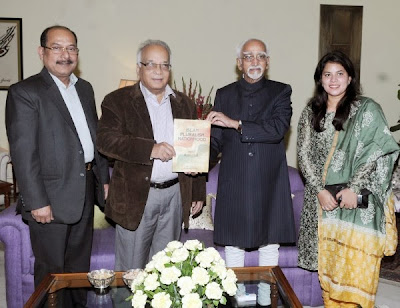



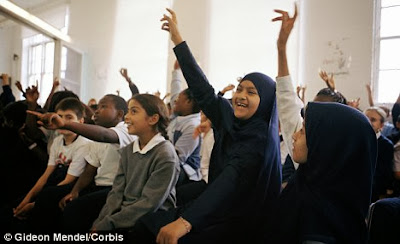

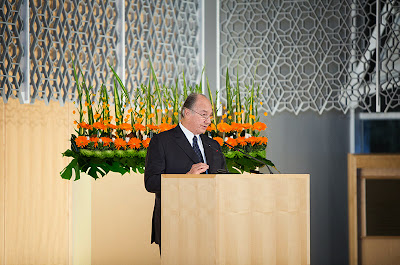
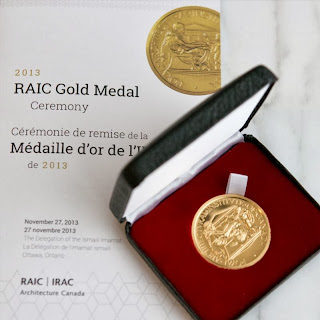
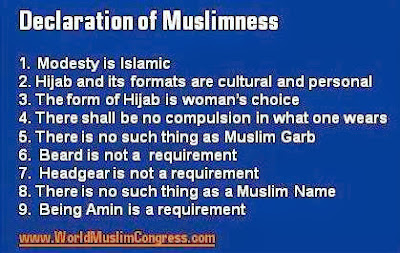


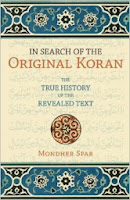

 The term hijab (in bold in the quotations below) is used in the Quran a total of five times (Q 7:46; Q 19:16-17; Q 33:53; Q 41:5; Q 42:51). These passages are listed below for easy reference. The English translations of Quranic verses provided here are by M.A.S. Abdel Haleem in his new translation of the Quran (Oxford World’s Classics, 2004).
The term hijab (in bold in the quotations below) is used in the Quran a total of five times (Q 7:46; Q 19:16-17; Q 33:53; Q 41:5; Q 42:51). These passages are listed below for easy reference. The English translations of Quranic verses provided here are by M.A.S. Abdel Haleem in his new translation of the Quran (Oxford World’s Classics, 2004). There are three references to women’s clothing in the Quran that are made without the use of the term hijab. All three references listed below. In these three Quranic passages about women’s clothing, the Quran uses the Arabic word khimar to refer to women’s headscarves (Q 24:31), jilbab to their outer garments (Q 33:59), and zinah to refer to their “finery” (Q 32:33).
There are three references to women’s clothing in the Quran that are made without the use of the term hijab. All three references listed below. In these three Quranic passages about women’s clothing, the Quran uses the Arabic word khimar to refer to women’s headscarves (Q 24:31), jilbab to their outer garments (Q 33:59), and zinah to refer to their “finery” (Q 32:33).
 Islamic law is oftentimes used as a synonym for sharia. However, we must understand this Islamic law to be a law created by men, and not the law of God which itself is perforce unknown and unknowable. In fact, the Arabic term sharia literally means “path,” and is used in the Quran to refer to God’s law.
Islamic law is oftentimes used as a synonym for sharia. However, we must understand this Islamic law to be a law created by men, and not the law of God which itself is perforce unknown and unknowable. In fact, the Arabic term sharia literally means “path,” and is used in the Quran to refer to God’s law.





